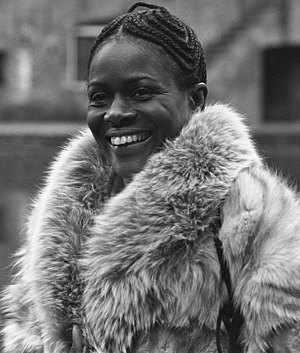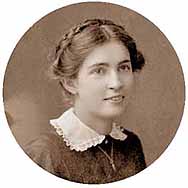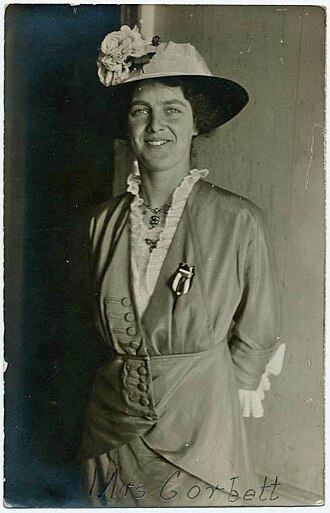Discover Your Roots
SIGN UPDiscover Your Roots
SIGN UPCicely is a charming female name of English origin, meaning "Blind Of Self Beauty." This name is associated with confidence and a humble nature. In addition to its significance as a name, "Cicely" is also the common name for Myrrhis odorata, a herbaceous perennial plant from the celery family Apiaceae. Native to southern and central Europe, it features fernlike leaves and creamy-white flowers, exuding a strong aniseed scent when crushed. The plant has culinary and medicinal uses, with its leaves, roots, and seeds being edible. Cicely is also known for its essential oils, particularly anethole, and is used to flavor akvavit. This name carries a sense of natural beauty and resilience, reflecting the qualities of the Myrrhis odorata plant.

Cicely Tyson was a renowned American actress known for her portrayals of complex and strong-willed African American women. Her career spanned over seven decades, during which she received several awards, including three Emmy Awards, a Peabody Award, and a Tony Award. Notable for her performance in the drama film "Sounder" (1972), she earned nominations for the Academy Award for Best Actress and Golden Globe Award for Best Actress in a Motion Picture – Drama. Tyson's impactful roles extended to television, where she broke barriers with her regular role on the CBS drama series "East Side West Side" (1963–1964) and won two Primetime Emmy Awards. Her Broadway appearances also garnered critical acclaim, and she became the oldest winner of the Tony Award for Best Actress in a Play at the age of 88. Tyson's career included significant performances in films such as "Fried Green Tomatoes" (1991), "The Help" (2011), and "Last Flag Flying" (2017). Her legacy as a trailblazing actress was acknowledged through various prestigious honors and awards, including the Kennedy Center Honors, the Presidential Medal of Freedom, and the Honorary Academy Award. Born in the Bronx, New York City, to immigrant parents from Nevis, Tyson's religious upbringing and early struggles to pursue acting shaped her remarkable journey to becoming a celebrated figure in the entertainment industry.

Cicely Mary Barker (28 June 1895 – 16 February 1973) was an influential English illustrator known for creating the famous Flower Fairies. Born in Croydon, England, Barker's artistic talent was evident from a young age, and she began exhibiting her work at the Croydon Art Society at just 13 years old. Despite facing physical challenges due to epilepsy, she persevered and honed her skills through education at home and correspondence art courses. Her illustrations caught the attention of Raphael Tuck, leading to her artwork being featured on greeting cards and in magazines. In 1923, Barker's enchanting Flower Fairies of the Spring captivated a war-weary public, offering a vision of hope and innocence during a time of upheaval. Her intricate fairy art was informed by her deep Christian faith and admiration for the Pre-Raphaelites, showcasing meticulous depictions of flowers and plants. Notably, Barker always used real-life models for her paintings, ensuring botanical accuracy. Her work extended beyond fairy art to include religious illustrations and decorations for churches. Throughout her prolific career, Cicely Mary Barker's art continues to captivate audiences, leaving a lasting legacy in the world of illustration and fairy folklore.

Cicely Frances Berry (17 May 1926 – 15 October 2018) was a distinguished British theatre director and vocal coach known for her profound impact on the world of acting and performance. Berry's illustrious career saw her serving as the voice director for the Royal Shakespeare Company for an impressive 45 years. She was also a revered instructor at London's Central School of Speech and Drama, where she shared her expertise in voice and text coaching. Berry's influence extended globally, as she conducted workshops in countries such as Korea, Russia, and Asia, and even brought her unique approach to prisons, using Shakespeare to help individuals build confidence in speaking and respond to imagery. Apart from her theater work, Berry also made notable contributions to the film industry, serving as a voice specialist and dialogue coach on various productions. Her significant achievements were duly recognized, with honors including an OBE and a Commander of the Order of the British Empire (CBE) appointment. Berry's invaluable contributions to the world of theater and film continue to inspire and shape the craft of acting and performance.

Cicely Fisher (née Corbett; 9 August 1885 – 20 January 1959) was a prominent British suffragist and workers' rights activist. Born into a family with a strong commitment to women's rights, she co-founded the Liberal Women's Suffrage Group and played a pivotal role in advocating for women's suffrage. Fisher's activism extended to the improvement of wages and working conditions for women, as she worked with organizations such as the Women's Industrial Council and the National Anti-Sweating League. She also spoke out against child labor and organized speeches by exploited women workers. In 1913, she married Chalmers Dempster Corbett, a liberal journalist, and together they adopted the surname Corbett Fisher. Their daughter, Bridget Gilling, was born in 1922. Throughout her life, Fisher remained politically active, supporting the Labour Party and the Women's International League for Peace and Freedom. Her legacy as a dedicated advocate for women's rights and workers' rights endures, and her contributions continue to inspire generations. Cicely Fisher passed away in 1959, leaving behind a profound impact on the fight for equality and social justice.

Elizabeth Cicely Ridley (née Taylor, 1927–2008) was a renowned British-American applied mathematician celebrated for her contributions to numerical quantum chemistry and climate modeling. Born in Leicester, she excelled academically, earning a master's degree in physics from Newnham College, Cambridge, and later completing her Ph.D. under the mentorship of Douglas Hartree. Ridley's significant career milestones included pioneering work at the United Kingdom Atomic Energy Authority and later at the National Center for Atmospheric Research (NCAR), where she co-developed the Roble–Dickinson–Ridley code, the first general circulation model of the thermosphere. Her exceptional research significantly impacted the fields of atmospheric science and quantum chemistry. Despite retiring in 1995, Ridley's legacy continues to inspire and influence the scientific community. Her numerous publications, such as "The self-consistent field for Mo+" and "A three-dimensional general circulation model of the thermosphere," further solidify her enduring impact on applied mathematics and atmospheric science. Elizabeth Cicely Ridley's invaluable contributions to science have left an indelible mark on the fields of climate modeling and numerical quantum chemistry.
All images displayed on this page are sourced from Wikipedia or Wikimedia Commons.We use these images under their respective Creative Commons or public domain licenses. Wherever applicable, author attributions and license information are provided. If you believe an image is used incorrectly or outside its license terms, please contact us so that we can review and correct the issue.